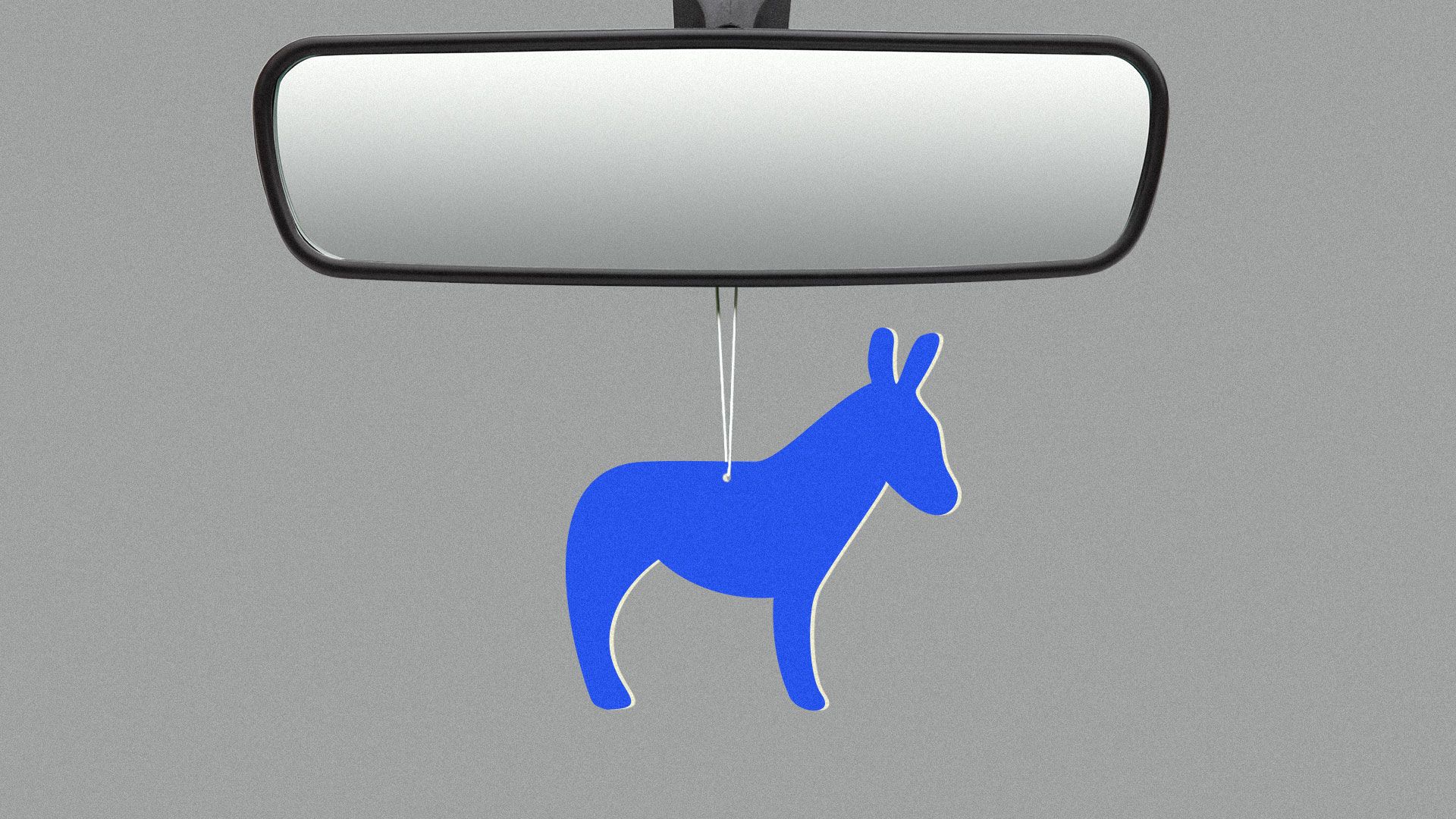2020 Democrats promise clean car agenda
Add Axios as your preferred source to
see more of our stories on Google.

Illustration: Aïda Amer/Axios
While President Trump is moving to ease Obama-era tailpipe emissions rules, Democrats running to unseat him want to accelerate the shift to electric cars, trucks and buses and take gasoline-powered vehicles off the market entirely.
Why it matters: The 2020 presidential race could produce two vastly different outcomes for the auto industry, and that regulatory whiplash is hampering carmakers' long-term investment decisions.
Here's a rundown of some of the policies Democratic candidates would use to push the country toward cleaner cars:
Emissions: Most of the candidates say they'll push for a "zero emissions economy" by 2050 or earlier, and a few have deadlines for electric vehicle adoption.
- Elizabeth Warren and Andrew Yang both say their goal is 100% zero-emissions for all new vehicles by 2030.
- Pete Buttigieg's targets are 2035 for ZEVs, and 2040 for heavy-duty trucks.
Consumer incentives: Many say they would extend tax breaks and offer trade-in discount programs to encourage people to replace their gasoline-powered car with a zero-emission vehicle.
- The current $7,500 federal tax incentive for EVs phases out for each manufacturer after they sell 200,000 plug-in vehicles.
- That policy favors early adopters not widespread use and puts Tesla and GM, who've hit the limit, at a pricing disadvantage as more EVs hit the market.
- Buttigieg says he would increase the federal EV tax credit to $10,000 and phase it out after "a certain percentage of vehicles sold in the U.S. each year are EVs."
Charging infrastructure: Most candidates agree more charging stations are needed to support the shift to electric vehicles.
- Joe Biden says he would add 500,000 new public charging outlets by the end of 2030.
- Warren's plan is "widespread" charging stations, including at every federal interstate rest stop.
- Yang and Buttigieg also say they'd invest in or provide incentives for public chargers to improve EV access for all.
Manufacturing incentives: The Democrats link vehicle electrification to U.S. manufacturing and jobs.
- A spokesperson for Bernie Sanders says they would "create millions of jobs manufacturing clean, American-made electric vehicles."
- Yes, but: Electric vehicles have fewer parts and are easier to build, meaning they require less labor. The United Auto Workers union is also worried that many electronic parts for EVs will come from outside the U.S.
But, but, but: Major pieces of the Democrats' plans, such as expanded EV tax credits and major new spending on charging infrastructure, would require congressional action.
- Even if their most aggressive plans don't come to pass, the Democrats would likely reverse Trump's efforts to weaken efficiency and emissions rules.
The impact: "When you have these kinds of variables that are vital to [automakers'] product plans, they would at least like to know what direction to head in," IHS Markit analyst Devin Lindsay tells Axios.
The bottom line: American roads could look dramatically different in the future, depending on who's in the White House.
Read their fuller responses here.
Editor's note: This piece corrected the spelling of Andrew Yang's last name.

